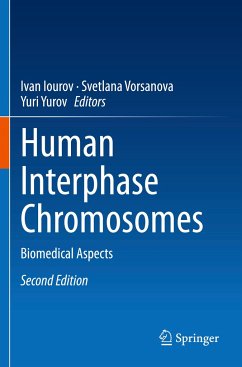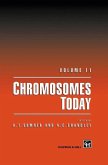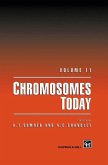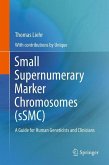This second edition focuses on the study of human interphase chromosomes and its relation to health and disease. Orchestrated organization and behavior of the human genome in interphase nuclei at chromosomal level has been repeatedly shown to play a significant role in almost all basic biological processes involved in the processing and inheritance of genetic information within and between species. Accordingly, post-genomic bioscience appeals to basic and applied studies of interphase nuclei genetics and genomics with special attention to interphase chromosome behavior in health and disease. Additionally, elucidating the role of interphase chromosome behavior during development, chromosome/DNA replication, DNA reparation opens new horizons for basic and applied bioscience
Studies of interphase nuclei have an appreciable impact on different areas of biomedical sciences such as cell biology, neurobiology, cancer research, developmental biology, epigenetics, cytogenetics, and medical genetics, as a whole. Moreover, development of innovative and emergent technologies to analyze interphase nuclei are closely associated with application of these techniques in diagnostic and research practices to solve reproductive problems (including infertility and spontaneous abortions), to investigate congenital malformations (including those produced by aneuploidy and other chromosome abnormalities); genetic diseases (including cardiac, immune, neurological and psychiatric diseases), and cancer. This second edition serves as a source of updated valuable information and promising ideas for a wide audience of professionals in biomedicine including researchers, scientists, and healthcare professionals in human genetics, cytogenetics, and developmental biology.
Studies of interphase nuclei have an appreciable impact on different areas of biomedical sciences such as cell biology, neurobiology, cancer research, developmental biology, epigenetics, cytogenetics, and medical genetics, as a whole. Moreover, development of innovative and emergent technologies to analyze interphase nuclei are closely associated with application of these techniques in diagnostic and research practices to solve reproductive problems (including infertility and spontaneous abortions), to investigate congenital malformations (including those produced by aneuploidy and other chromosome abnormalities); genetic diseases (including cardiac, immune, neurological and psychiatric diseases), and cancer. This second edition serves as a source of updated valuable information and promising ideas for a wide audience of professionals in biomedicine including researchers, scientists, and healthcare professionals in human genetics, cytogenetics, and developmental biology.








